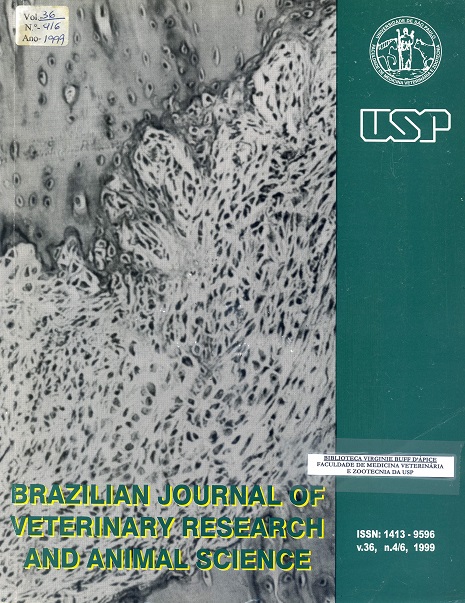Effect of dietary protein and methionine levels on forced molt performance of laying hens
DOI:
https://doi.org/10.1590/S1413-95961999000600010Keywords:
Proteins, Methionine, Egg quality, HensAbstract
This experiment was conducted to evaluate the effect of diets with two protein levels (16.5% and 14.5%) and 5 supplemental methionine levels (0%, 0.025%, 0.050%, 0.075% and 0.100%) on postmolt layer performance. Two hundred forty commercial laying hens at 67 wk of age were induced to molt by zinc oxide and fed ten molt experimental diets for 6 wk. At the end of the experiment body weight, feed consumption and feed conversion were significantly higher for the birds fed the 16.5% crude protein diet. Hens fed higher protein level diet returned to egg production faster than those birds fed lower protein diet. Rations with 16.5% of protein determined a significant better egg production until the fifth experimental week, without affecting the egg weight. The methionine supplementation significantly increased egg weight, however did not statistically influence the egg production. Birds fed approximately 300 mg methionine daily (0.050% and 0.075% supplemental methionine levels) produced eggs significantly heavier, however resulting in a low egg shell quality measured by egg specific gravity, shell thickness and shell weight.Downloads
Download data is not yet available.
References
Downloads
Published
1999-01-01
Issue
Section
ZOOTECHNICS
License
The journal content is authorized under the Creative Commons BY-NC-SA license (summary of the license: https://
How to Cite
1.
Mendonça Jr. CX de, Lima FR de. Effect of dietary protein and methionine levels on forced molt performance of laying hens. Braz. J. Vet. Res. Anim. Sci. [Internet]. 1999 Jan. 1 [cited 2026 Feb. 15];36(6):332-8. Available from: https://revistas.usp.br/bjvras/article/view/5731





